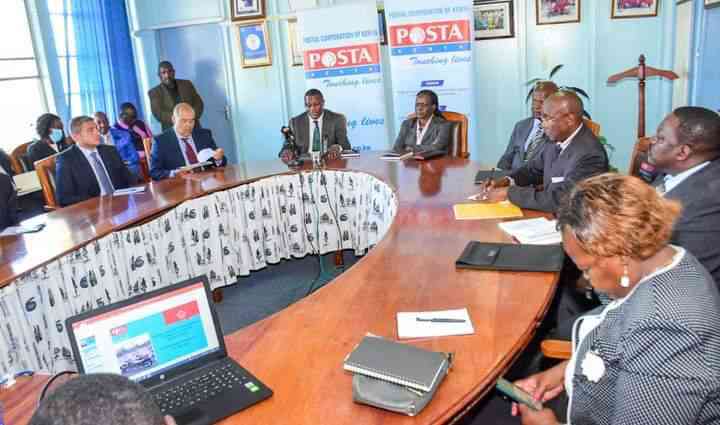
Industrialization: Levelling up Kenya’s manufacturing sector
- Export-led Industrialization emerges as an integral part of Kenya’s economic strategy, with the MPA aiming to unlock new markets and optimize trade opportunities within regional blocs.
By Rajan Shah
At a given time, in the records of history, Kenya and Malaysia stood as equals, both navigating the labyrinth of development with hopes of a brighter future. Fast forward to the present, Malaysia has risen to the level of first-world prosperity, leaving Kenya to ponder what could have been. But amidst the echoes of missed opportunities, a beacon of hope emerges: the transformative power of Industrialization.
Kenya’s industrial sector develops like a canvas, with each brushstroke exposing a series of highs and lows. According to data released by the Kenya National Bureau of Standards (KNBS), the sector’s Gross Domestic Product (GDP) contribution fell from 9.3% in 2016 to 7.2% in 2021 but increased to 7.8% in 2022.
In the face of this sobering truth, Kenya stands at a crossroads, urged to craft a new narrative and chart a course towards tangible progress. History whispers tales of how industrialization catalysed the ascent of nations like the United States, the United Kingdom, Germany, and the newly industrialized countries of Southeast Asia, notably South Korea, painting a picture of high, rapid, and sustained growth intricately woven with manufacturing prowess. Kenya, with its fast-growing youth population and untapped potential, stands on the verge of a similar scenario, poised for transformation through industrialization.
Over 800,000 young Kenyans enter the labour force each year, seeking opportunities that traditional sectors like agriculture and informal services struggle to provide. However, manufacturing holds the promise of not just jobs, but meaningful livelihoods capable of uplifting communities and driving economic prosperity. This reality highlights the urgent need for Kenya to embrace industrialization as a pathway to unlock its full economic potential and secure a brighter future for its citizens.
Kenya Association of Manufacturers (KAM) recently unveiled its Manufacturing Priority Agenda (MPA) 2024. This report serves as a roadmap, for elevating Kenya’s manufacturing sector to new heights, promoting economic prosperity and sustainable development through industrialization and value addition. This year’s MPA theme, ‘Steering economic growth through the manufacturing sector for common good’, is more than just a phrase; it represents a collective call to action. At the core of the MPA are four pillars, each a cornerstone in Kenya’s pursuit of industrial excellence. These four pillars include Global Competitiveness, Export-led Growth, SME Development and Agriculture for Industry (A4I).
Kenya’s scaling in the global arena is reflected in its climb from position 115 to 108 in the UNIDO’s Competitiveness Industrial Performance (CIP) Index. However, there is still ground to cover, especially when compared to regional powerhouses like South Africa and Egypt. KAM’s agenda is clear: create a predictable and competitive tax regime, streamline regulations, reduce the cost of electricity, and slash transport and logistics costs to bolster Kenya’s competitive edge.
Export-led industrialization emerges as an integral part of Kenya’s economic strategy, with the MPA aiming to unlock new markets and optimize trade opportunities within regional blocs. From enhancing domestic market access to optimizing market opportunities within the East African Community (EAC) and African Continental Free Trade Agreement (AfCFTA), the agenda is clear: diversify and optimize international market access to unleash Kenya’s export potential.
SMEs are the lifeblood of Kenya’s economy, embodying the spirit of innovation and entrepreneurship. The MPA recognizes the importance of nurturing SME growth and resilience, aiming to create an ecosystem where these enterprises can thrive and flourish. From enhancing market access to ensuring access to finance, the agenda seeks to level the playing field for SMEs, unlocking their full potential as drivers of economic growth.
Agriculture lies at the heart of Kenya’s economic landscape, offering a pathway towards prosperity and growth. Through A4I initiative, KAM aims at harnessing the potential of agro-industrial value chains. By promoting value addition and modernization, the agenda seeks to create a vibrant ecosystem where agriculture serves as a catalyst for economic transformation. The A4I initiative has a potential of creating a tide that will lift all boats.
The achievements of MPA 2023 demonstrate the value of strategic planning and collaborative efforts to create a favourable environment for Kenya’s manufacturing sector. Through initiatives such as the reintroduction of the County Governments (Revenue Raising Process) Bill 2023 and the County Licensing (Uniform Procedures) Bill 2023, duplicity and multiplicity of taxes will be addressed, streamlining the regulatory landscape for manufacturers. Additionally, advancements in regulations like Net Metering and open access, signal progress towards reducing the cost of energy, thereby promoting sustainability and affordability in the manufacturing process. Moreover, the implementation of the Intellectual Property Rights (IPRs) Recordation Program underscores Kenya’s commitment to combating counterfeits and protecting intellectual property, crucial for fostering innovation and safeguarding manufacturers’ interests.
As KAM looks towards MPA 2024, it aims to build upon these achievements, striving to attract even more wins by further enhancing the regulatory environment, promoting innovation, and fostering market access opportunities to propel Kenya’s manufacturing sector towards greater heights of success.
As we look to the future, let us dare to imagine a Kenya where factories boom with activity and where innovation knows no bounds. The journey from the third world to the first may be long, but our true north remains “Creating prosperity for our nation through industrialisation”.
The writer is the Chairman of Kenya Association of Manufacturers and can be reached on info@kam.co.ke.









